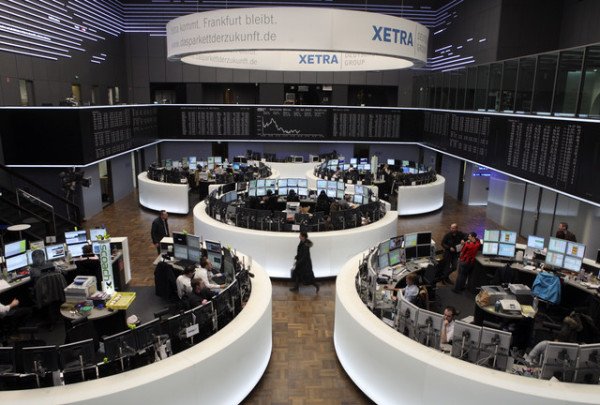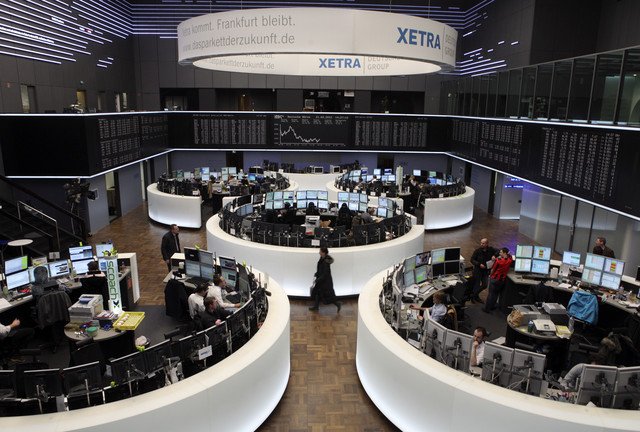Europe’s stock markets have cut their losses after oil rose back above $30 a barrel, despite another slide in Asia on January 26.
London’s FTSE 100 was down 0.5% at 5,847.5 points, with declines of about 0.4% in both Frankfurt and Paris.
Shanghai tumbled 6.4% to its lowest close since December 2014, while the Hang Seng in Hong Kong fell 2.4%.
Brent crude rose 1.2% to $30.87 a barrel, reversing earlier falls, while US oil was up 1% at $30.63.
Stock markets have made the rockiest start to the year in recent memory as worries over the economic strength of China- considered for years the engine of world economic growth – have intensified.
Other investment prices have been buffeted by falling confidence.
Although China is still growing the pace is slowing, and as demand for key industrial products such as oil and iron ore slips back, so do their prices.
Oil prices were hit again earlier on January 26 by figures from China showing annual rail freight volume – a key economic indicator – fell 11.9% last year, compared with a decline of 3.9% in 2014.
The Shanghai index has already fallen about 17% this year.
On the FTSE 100, among the top risers were Randgold Resources and Fresnillo.
Gold rallied to its highest level since November at $1,112.86 an ounce. The safe-haven commodity has risen nearly 5% this year, after sliding more than 10% in 2015.
The US Federal Reserve’s rate-setting committee starts a two-day policy meeting on January 26 and is not expected to make any change.
Meanwhile, Chinese state media have warned billionaire investor George Soros against betting on falls in the yuan or the Hong Kong dollar.
George Soros, who made more than $1 billion from shorting sterling in 1992, has said he was betting against the S&P 500, commodity-producing countries and Asian currencies, although he has not specifically mentioned the yuan or Hong Kong dollar.
China’s central bank has been making plenty of liquidity available to the banking system to avoid any cash squeeze ahead of the long Lunar New Year holiday early next month.
Traders said that the bank would inject 440 billion yuan into the money markets, the biggest daily injection in three years.
